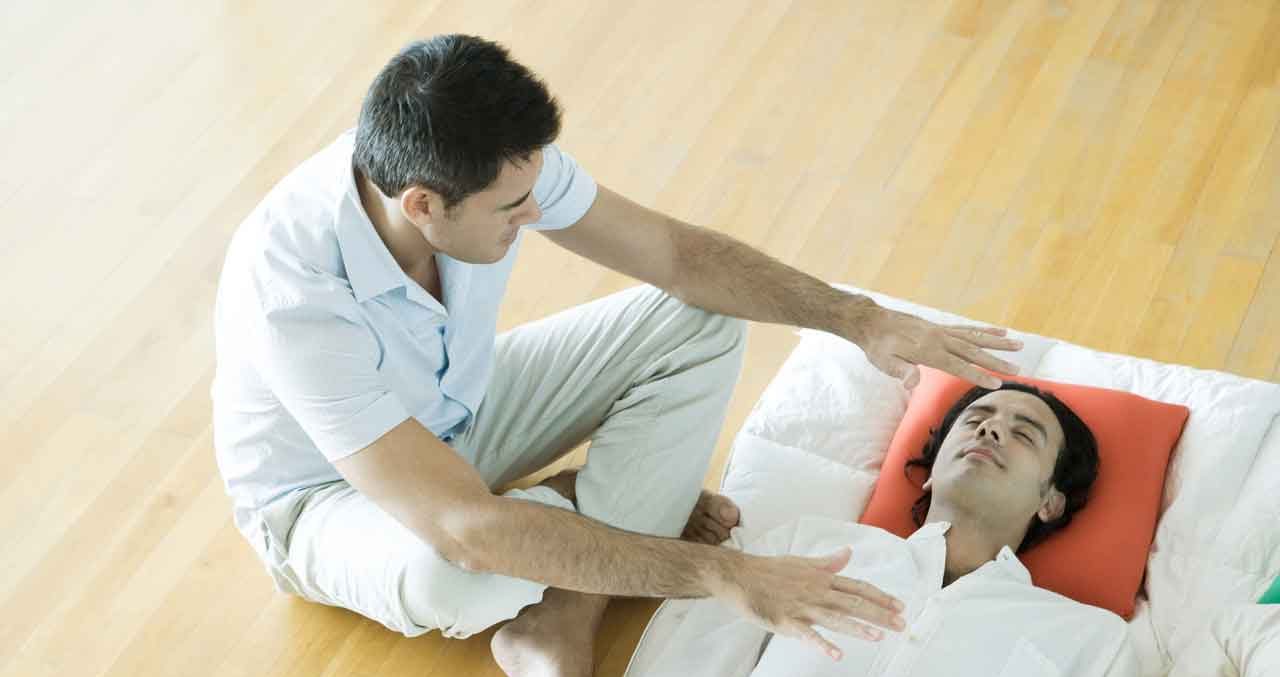Does Energy Healing (Reiki) Work?

Anything that helps you relax can be useful for treating chronic pain and anxiety. But spend your time and dollars carefully. Here’s what you should know.
Carly Moore is lying on an exam table in a fetal position. Her mother asks how bad her pain is.
Asked the question many times before, she answers 6.6 on a scale of 1 to 10. Her medication isn’t working.
YOU MIGHT ALSO LIKE: The Mysterious Power of Placebos
Sheila Mee, of Children’s Hospital & Medical Center in Omaha, has her hands an inch or so above where it hurts worst: Carly’s wrist and thumb. Mee doesn't touch the teenager, but slowly moves her hand back and forth over the painful area.
The room is silent. After about five minutes or so, Carly reports that her pain is at “zero and a half.”
Mee is a practitioner of energy healing and a former chaplain. She uses a practice called Reiki to treat the teen’s arthrogryposis, a condition in which joints are fixed in a bent or straightened position.
In the United States, Reiki — developed in the 1920s as a spiritual practice in Japan — is the best known of many energy healing practices around the world. A small French study found little research but some reason to believe that Reiki can relieve pain and decrease anxiety and depression for people at the end of life.
The practice has slowly won some acceptance among nurses in hospitals. Some people even report feeling better when they were treated over video.
It’s worth noting that devout Christians have offered prayer as a pain cure for centuries. Among people who believed that kings ruled by God’s will, it was widely believed that divine power could cure through touching an item the king had touched.
Modern fans say that healing energy, even without touching the body, does good through changes science still can’t predict or measure precisely.
The benefits may lie in a placebo effect, which is valuable, especially when there are no better options. Researchers know that the placebo effect can work even if patients know they are receiving a placebo. In other words, they allow themselves to be hopeful and, in effect, let their hope help them.
Placebos (which may include energy healing) appear to be most effective for pain, including irritable bowel syndrome (IBS) and migraine, as well as stress-related insomnia and cancer side effects like fatigue and nausea.
The worry is that patients will spend money and time and possibly dismiss or fail to seek better-proven treatments that might be more lasting or powerful.
But there are doctors who think energy healing is worth the try.
Deepak Chopra, a best-selling author and a holistic physician who also subscribes to Western teachings, said that “science is starting to understand how energy healing works.”
"It triggers your healing system, which is called homeostasis," he said. Homeostasis is what tells your body to create an antibody when you have an infection or a clot when you fall so that you don't bleed to death.
Mark Melrose, MD, an emergency physician at Memorial Sloan Kettering Cancer Center in New York, said: “There’s infinitely more we don’t understand” about medicine, and that alternative therapies such as energy healing could help patients — provided they do no harm and complement traditional treatments.
"If it makes you feel better, then it's probably helping," he said.
Calming your body is linked to an improvement of many health conditions, from pain to heart disease and high blood pressure.
Andrew Weil, MD, agrees that relaxation is important. When a person is deeply relaxed, he notes, “heart rate and blood pressure decrease, blood flow to the bladder and bowels increases, and breathing becomes rhythmic and slow.”
“Research on (healing touch) seems to indicate its value in medical settings in promoting wound healing, decreasing pain, and improving quality of life measures,” he says. “But energy therapies such as HT remain highly controversial. While there is abundant, relatively uncontroversial evidence that massage can have therapeutic effects, non-contact modalities are seen as far more problematic.”
Still, he often recommends energy therapies to patients with chronic pain or anxiety.
Beyond Reiki, there is also some research and anecdotal enthusiasm about Qigong, a Chinese practice that is also based on ideas about energy, for chronic pain and cancer.
The bottom line may be that people need better ways to measure the kind of energy involved in non-touch practices to assess changes, a Portuguese team of scientists suggest. Those tools will allow tests to assess energy practitioners.
So far, there’s little proof to back up claims that energy healing is effective. But that doesn’t mean it won’t help you.
It's always a good idea to recognize that medicine changes over time, and there’s much science doesn’t know. With energy healing, there’s little risk, except perhaps to your budget.
You can also relax in many other ways. Consider exercise, meditation, time with friends, and listening to music. A massage from your partner might be helpful, too.
Updated:
August 30, 2023
Reviewed By:
Christopher Nystuen, MD, MBA